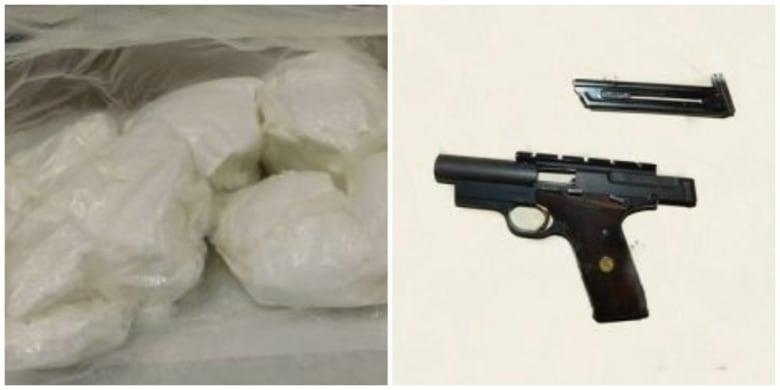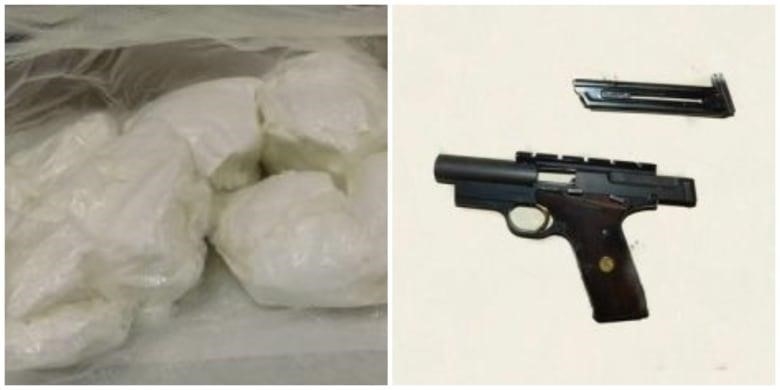
Brandon Tobin is currently serving a federal prison term on gun and drug offence
In a murder investigation that started last year, the grandson of an 82-year-old woman who was found dead has become the main suspect.
But they are still waiting for key evidence from the RCMP forensic lab: vials of the suspect’s blood.
These details are written down in court documents that CBC News got its hands on. The documents are an application by the Royal Newfoundland Constabulary to keep items that were seized during the homicide investigation.
The RNC says it thinks that 28-year-old Brandon Tobin killed his grandmother Mildred (Millie) Brake in the house they shared last winter.
He has not been charged with a crime in connection with her death, and the RNC has not named him as a suspect in public.
On March 16, 2022, just before 11 p.m., paramedics were called to Brake’s home on Mitchell Court, near Elizabeth Avenue. She was pronounced dead at the scene of the accident. Later, the RNC said that her death was ruled a murder, but they didn’t say anything else.
The obituary for Brake shows that she was a loving mother, grandmother, and great-grandmother who “lived a full and warm life full of joy and kindness.”

The next day, the RNC arrested Tobin and took him to the Health Sciences Centre for unknown medical treatment, according to documents. As part of that treatment, blood samples were taken. Soon after, the police got a court order to take those four vials of blood.
- RNC says the 82-year-old woman who died in St. John’s was killed.
Officers looked through the house and used swabs to look for red stains on the door frames, walls, and stairs. They also took towels with red on them. The items were sent to the forensic laboratory of the RCMP in Ottawa. Since then, they have been looked at and sent back to the RNC.
But the RNC said that it is still waiting for the blood samples from Tobin to be analyzed.
“The RCMP lab has had these items for 322 days, and RNC has not yet received the results of the blood analysis,” a court document from February 24, 2023, said.
In late February, an RNC sergeant called the crime lab to find out when the analysis would be done. He was told that the analysis was still being done and that, because of forensic lab backlog, another six-month retention date would be given.
Turnaround times vary: RCM
In a statement to CBC News, the RCMP said that the National Forensic Laboratory Services cannot comment on any specific investigation or request for service.
Cpl. Kim Chamberland, a spokeswoman, said that, in general, turnaround times depend on the type of analysis, demand for the service, and capacity.
“In some cases, additional requests for service from the investigating agency may come after the original submission,” Chamberland said in an email.
“When the situation calls for it, certain service requests can be given priority status.”
The RCMP has three labs in Canada. They are in Ottawa, Edmonton, and Surrey, British Columbia. All provinces except Ontario and Quebec are served by these labs.
Tobin is in federal priso
Tobin is already in federal prison because of charges that came out of the investigation into the murder.
The papers say that when police searched Brake’s house after she died, they found a bag of cocaine. Later, a search warrant was given to the RNC, which took away a handgun, ammunition, a half kilogram of cocaine, and drug paraphernalia.

Tobin was found guilty last fall of a number of crimes involving drugs and weapons.
He is in jail at the Springhill Institution in Nova Scotia right now.
He has been in trouble with the law before. Tobin was given just over four years in prison in December 2014 for beating another man with a baseball bat. He was first charged with trying to kill someone, but he later pleaded guilty to a more serious form of assault.
Find out more from CBC Newfoundland and Labrador
